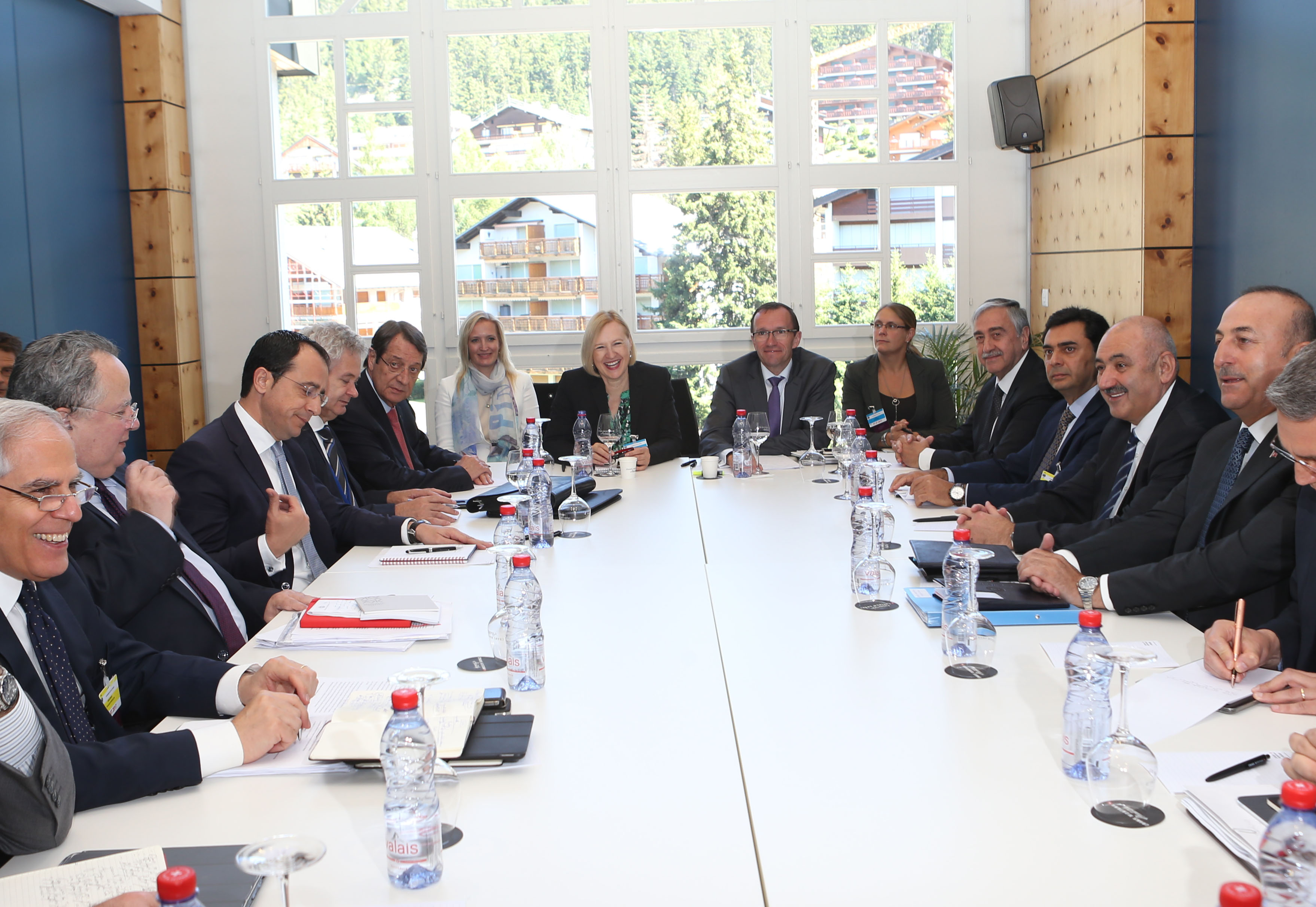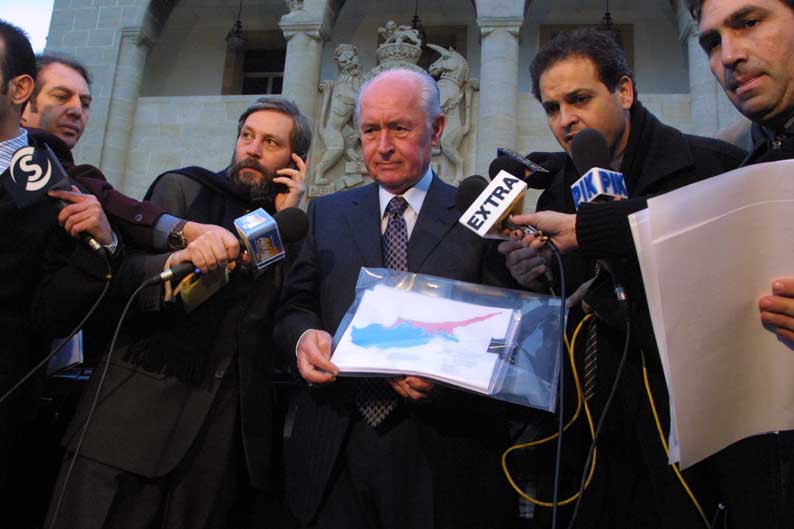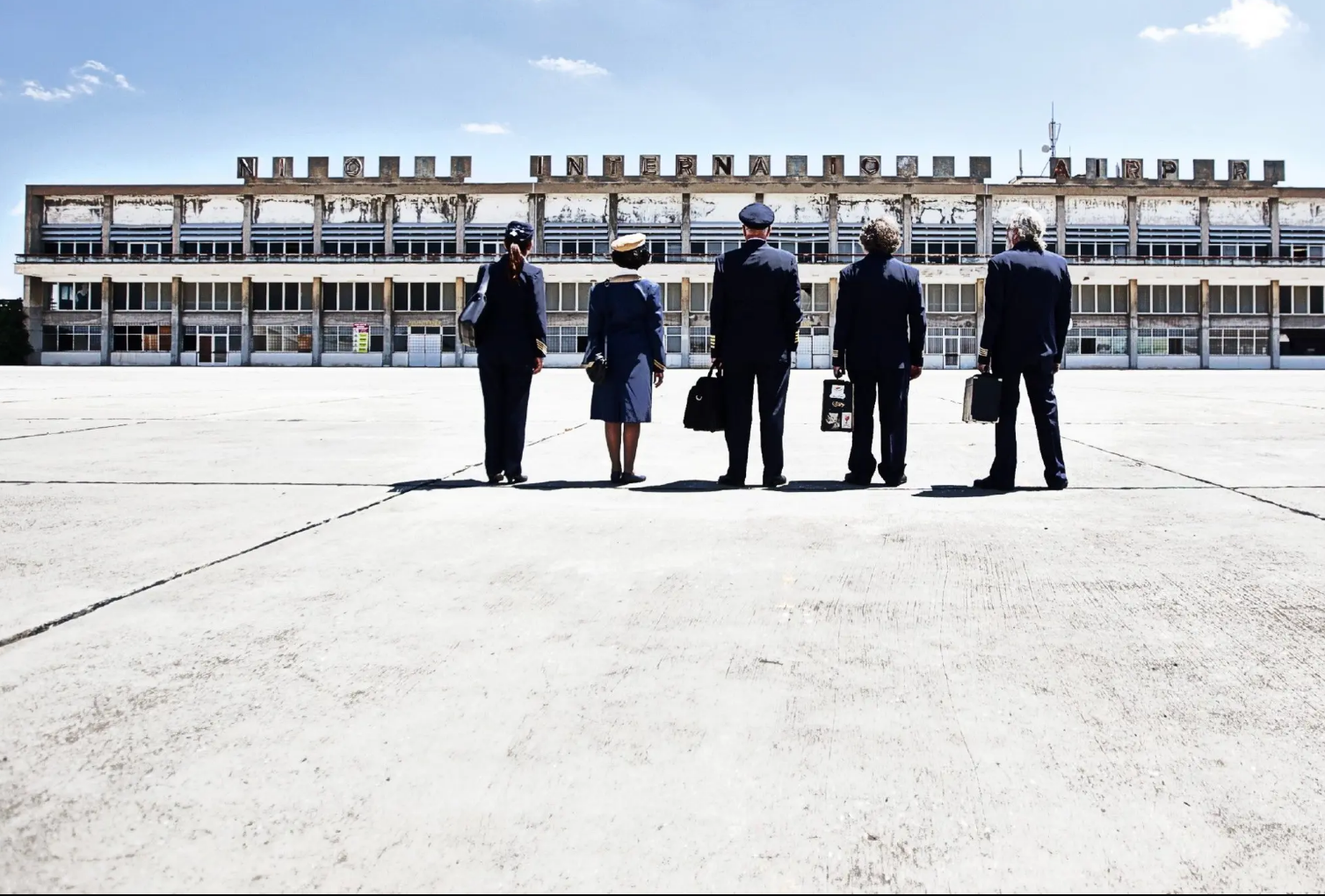Diaspora politicians speak out in support of a Cyprus resolution
By Theo Theophanous and Takis Christodoulou
We write as two former politicians of the Cyprus diaspora, one from Australia, one from South Africa, because we passionately believe in a united and free Cyprus.
We have come together with a plea. We do so after consultation over many years with politicians in Australia, South Africa, the United States and other countries with a diaspora.
We were founding members of the World Hellenic Interparliamentary Association (WHIA) that includes more than 150 politicians of Greek background in the Diaspora. We believe the views expressed here reflect the views of these politicians who want to see a united, democratic Cyprus.
To begin with we strongly believe that an opportunity for a resolution to the Cyprus issue has opened up with the election of Turfan Erhurman in the north with 63 per cent of the vote. We also think that this is perhaps the last chance.
We say last because if this opportunity is frittered away on the altar of prejudice, political expediency, party manoeuvres or sectional interests in north or south of the dividing line, then we think the international community will lose patience and the forces of division will prevail.
The stakes are very high.
Failure means a permanently divided Cyprus, continuous Greco-Turkish conflict, non-exploitation of Cyprus’ natural resources, impeded economic development and ongoing tension along the dividing line that could explode at any time.
The opportunity for unification presents itself because of the new Turkish Cypriot leader who was convincingly elected on a pro-solution, pro-unification and pro-Europe platform.
As politicians we recognise that the road ahead is perilous and must be manoeuvred with skill and determination.
President Nikos Christodoulides has before him an opportunity. He will go down in history as the president who reunited Cyprus or as the president who, like many of his predecessors, breaks the hearts of Cypriots all over the world with another failure.
To succeed we think he must adopt a strategy that contains the following points:
1. Being prepared to deploy political capital. The president must be prepared to spend a large amount of his own political capital in leading the Cypriot people to a settlement. He must accept this “use of personal capital” as he embarks on this journey and his cabinet must sit behind him in doing so. He cannot allow himself to succumb to populist or least resistance proposals. This is a precondition for success, and the president should publicly adopt it. We can assure him that from the point of view of Cypriots in the diaspora we will stand behind him against forces seeking to stop a settlement.
2. The president must abandon the idea that all parties and factions must agree. This was the modus operandi of some previous presidents who would not move unless all political parties agreed on the proposals. He must not fall into this consensus trap, as this is the road to failure. Yes, he must consult, but he must not adopt proposals that are clearly unacceptable to the north just because some group insists on them with the intention of scuttling the talks.
3. Compromise will be necessary. The negotiators must understand from the start that compromise will be necessary on both sides. Neither side will get everything it wants, and nor will the political parties. This is the ultimate test of leadership – get the best possible deal and persuade the people to accept it.
4. Start where Crans-Montana ended and bring forward confidence-building measures. Greek and Turkish Cypriots came tantalisingly close to an agreement in 2017. There is no reason to reinvent this wheel. The Greek Cypriot side has in the past suggested resuming negotiations from the point they ended in Crans-Montana. The new Turkish Cypriot leadership has suggested it was willing to consider this. It has also suggested that it was willing to discuss confidence-building measures. But if some of these confidence building measures cannot be agreed on, they should not be allowed to impede the negotiations for a total settlement.
5. Avoid fixed rules. Rules like “nothing is agreed until everything is agreed” and “no timelines” should be set aside. These rules have impeded previous discussions. There is nothing wrong with announcing points of agreement and points for discussion. It helps build confidence and is a normal part of a negotiation process. The same is true of timelines that can serve to motivate the two sides to reach a settlement on key issues. Indeed, for the most difficult issues that remain to be agreed upon even arbitration may need to be considered. Such arbitration can break the very final roadblock to an agreed proposal to put to the people.
6. Don’t allow centres of power opposed to a resolution to control the agenda. Negotiators will come under pressure from centres of institutional power opposed to a settlement such as the Orthodox Church, the National Guard, sections of business, some property owners and developers. These interests can be listened to but should not be allowed to call the shots. On the Diaspora’s behalf, we can say that we will strongly support the president if he is placed under pressure from these interest groups or others that oppose a settlement.
7. The leaders have a responsibility to thrash out a settlement to put to the people. For the leaders the road ahead cannot be a desire to see all of their wishes granted by the other side. The task of our president is to thrash out the best possible proposal, which will include compromises to put to the people for them to decide if they will support it.
This is a difficult, serious and important national moral imperative. It must be achieved even against formidable odds. Once a proposal to put to the people is agreed, to have any chance of success the consequences of rejection must also be clearly communicated. For the north, it would be continuing isolation as a pariah state. For the south, rejection could pave the way for international recognition of the north. The stakes for everyone are therefore incredibly high and must be seen to be high.
But equally, and most importantly, the leaders must understand that if they fail to reach an agreed proposal to put to their peoples it is likely that the world will give up on Cyprus. All that will be left is the well-known blame game as each side blames the other for failure. But the Greek Cypriot side has more to lose in such a scenario as the temptation to move to a two-state solution will be overwhelming.
8.Enlist Trump and the Europeans. The Trump administration is capable of placing pressure on Turkey to cooperate in a fair resolution. The Europeans and Trump must be enlisted to point out to Turkey the benefits to the whole region and to Turkey of a settlement and the costs to Turkey if it is to blame for failure.
We are working with like-minded legislators who are connected to the WHIA in the US and Europe as well as Africa and Australia to try to influence the Trump administration in bringing peace to an intractable conflict lasting more than 50 years. Peace in Cyprus and the follow-on effects for peace in the whole region would really be a strong argument for awarding the Nobel peace prize to Trump.
9. Take on the political parties that in truth do not want a solution. Some political parties, factions and political lobby groups and even some media will never agree, will exaggerate the reasons for saying ‘no’ and will seek to frighten citizens as they successfully did during the Annan plan referendum. They will become very vocal, even threatening. It’s important not to give in to them while of course listening to them.
10. Enlist the help of the Diaspora. The Diaspora stands ready to support a resumption of talks and a proposal in line with UN resolutions to unite Cyprus. This includes the many Cypriot and Greek community organisations around the world. It also includes the WHIA and the authors of this article. This includes supporting the government and opposing those centres of Institutional power and political parties who are opposed to a resolution.
We see the opportunity that has opened up by the elections in the north as perhaps Cyprus’ last chance to find a resolution and put it to the Cypriot people to decide. The very future of Cyprus and the broader peace in the region is at stake.
Cyprus has received significant support from many countries to reach a solution and unite. Some of those countries such as Israel are prepared to assist militarily in defending Cyprus in the event that Turkey decides to oppose a settlement and ongoing tensions become the norm. But even such countries would prefer to see a settlement and the complete demilitarisation of Cyprus and a peaceful prosperous area including the exploration of natural resources surrounding Cyprus. The Diaspora and we as former and many current politicians of Greek or Cypriot background stand ready to advise and to assist.
Theo Theophanous is a former MP and minister in Melbourne, Australia and president of the Cyprus Community of Melbourne and Victoria. Takis Christodoulou is a former MP in South Africa







Click here to change your cookie preferences